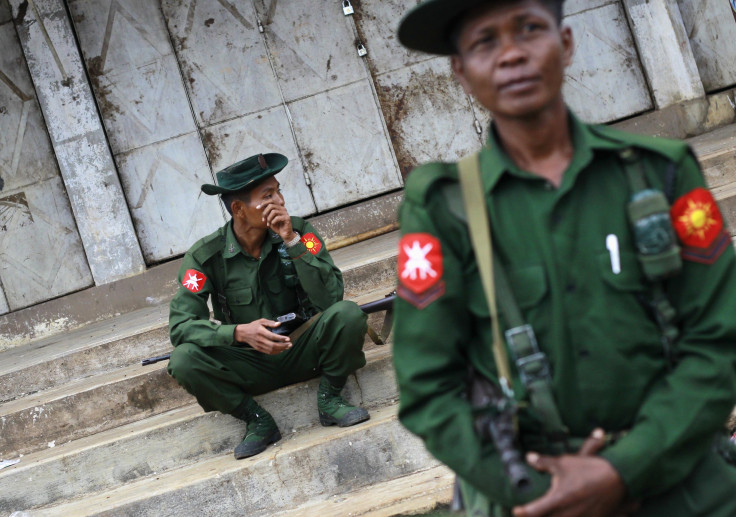Myanmar's Military Now Recruiting Women For The First Time In History

Myanmar’s military long ruled the Southeast Asian nation with an iron fist, but now the still-powerful entity is reforming right alongside its government, by admitting women for the first time.
“When we travel to other countries and interact with their military, we see that many of them have female soldiers in different roles, according to the organizational structure of that country’s military,” Khin Zaw Oo, a senior general and the chairman of the military-run conglomerate, the Union of Myanmar Economic Holdings Ltd., told The Wall Street Journal in an interview. “That’s why we decided to start our own recruitment process for females, to create job opportunities for women in the military and allow them to pursue this professionally.”
Single females between the ages of 25 and 30, taller than 1.6 meters (5 feet, 3 inches) and weighing less than 59 kilograms (130 pounds) are invited to enlist, according to job advertisements that ran in the state-run newspapers Myanmar Ahlin and New Light of Myanmar. Previously, women were confined to administrative roles or nursing in the Burmese army, known as the Tatmadaw.
Successful female candidates will be recruited as second lieutenants after training as cadets in Yangon, sparing them from fighting on the frontlines, and will also be given first priority in choosing which regions they wish to be sent to.
The advertisement is surprising but appealing to women like Soe Soe Myint, a 24-year-old sales girl in downtown Yangon, Myanmar’s commercial center, because a career in the army is generally believed to pay well compared to other jobs in the impoverished nation. Myanmar's average yearly wages are among the lowest in the region.
“If I pass the selection process, I can get a good salary even during the training period as a cadet,” said Soe Soe Myint, according to the Wall Street Journal.
Recruiting women represents a move out of the army's shadowy past as the nation transforms from military dictatorship to a civilian government. The army was once synonymous with human rights abuses and military coups, and kept the nation closed off and underdeveloped for decades.
Myanmar’s military is still among the largest in the region, with a budget of $2.4 billion, roughly 12 percent of government spending, despite attempts to settle several ethnic and regional insurgencies. Even so, in the future, the military will likely engage in less frontline fighting than before.
© Copyright IBTimes 2024. All rights reserved.











